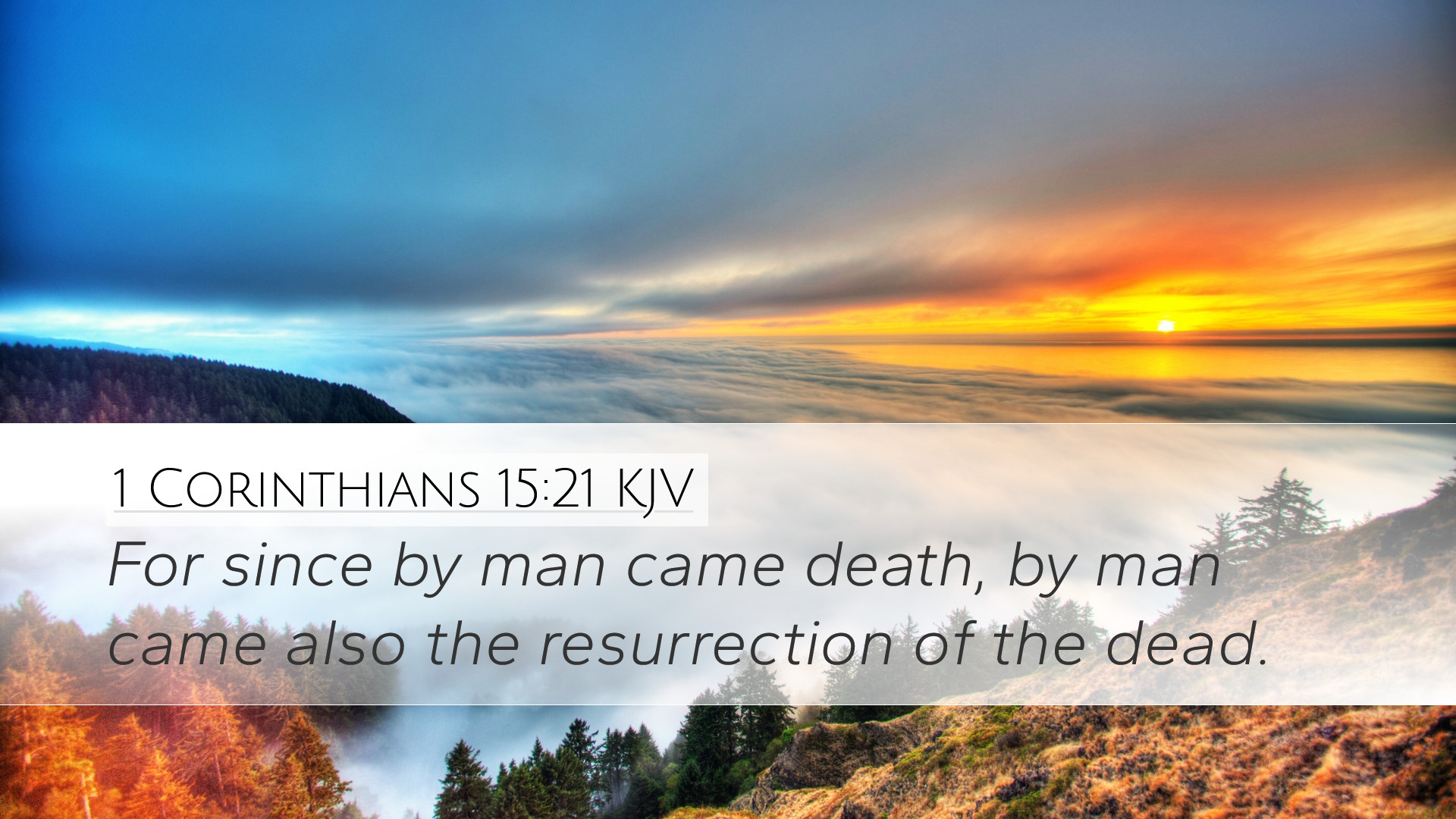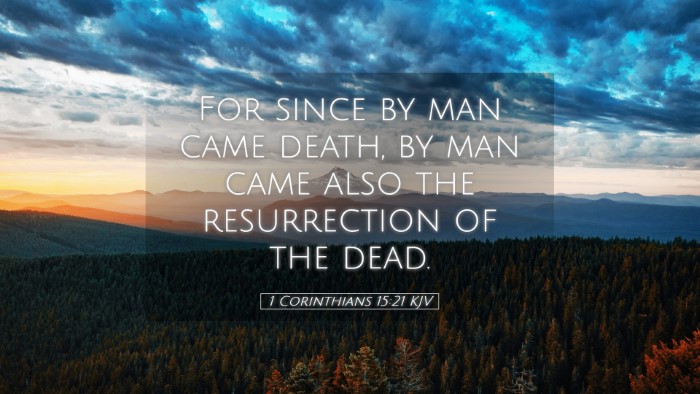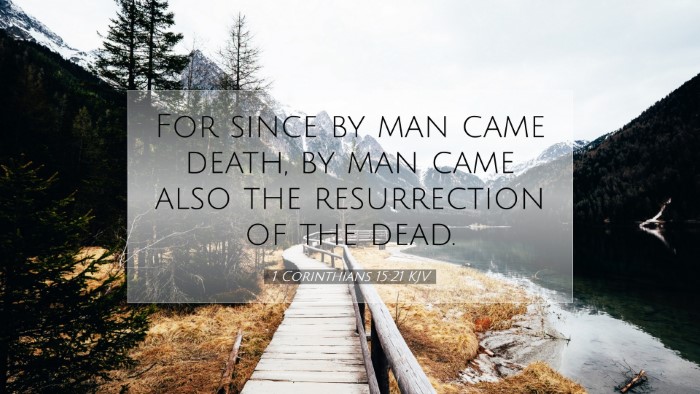Commentary on 1 Corinthians 15:21
Bible Verse: For since by man came death, by man came also the resurrection of the dead. (1 Corinthians 15:21)
Introduction
This pivotal verse in 1 Corinthians provides a succinct overview of the central themes of Christian theology: the introduction of death through Adam and the subsequent promise of resurrection through Christ. The Apostle Paul crafts a powerful argument in chapter 15 about the bodily resurrection of believers, and in verse 21, he summarizes the connection between humanity's fall and the hope of redemption.
Exploration of Key Themes
- The Origin of Death
Matthew Henry emphasizes that death entered the world through the transgression of Adam (Genesis 3). This event constituted humanity’s fall, bringing not only physical death but also spiritual separation from God. Thus, the Apostle Paul draws a direct line from this singular act of disobedience to the universal experience of mortality.
- The Promise of Resurrection
Albert Barnes highlights that just as death was introduced by man, so too is life restored through a man, Jesus Christ. This duality underscores the doctrine of federal headship in Biblical theology—Adam as the head of fallen humanity and Christ as the head of the redeemed. Paul contrasts the death that came through Adam with the life that comes through Christ, affirming that the resurrection is not just a spiritual rebirth but also a physical one.
- Human Condition and Divine Solution
Adam Clarke notes that the condition of humanity is dire due to sin, but the provision for salvation is equally profound. The fact that Paul uses "man" in both instances (Adam and Christ) indicates the necessity of our Savior’s true humanity. This resonates with theological discussions on the importance of the Incarnation, as Christ had to be fully human to redeem humanity.
Theological Implications
This verse encapsulates the foundational beliefs of Christianity: the reality of sin, the consequence of death, and the hope of resurrection. For pastors and theologians, understanding this verse is essential for communicating the Gospel. The death and resurrection of Christ are not isolated events but are directly tied to the overarching narrative of redemption found in Scripture.
Pastors can draw upon this powerful connection in sermons to instill hope within their congregations. The resurrection assures believers of their future hope, as articulated by Paul that “in Christ all shall be made alive” (1 Corinthians 15:22). Moreover, students and scholars are encouraged to explore the implications of this duality in Adam and Christ as they study the grand narrative of Scripture.
Practical Application
In considering the implications of this verse, believers are called to reflect on their own lives and the transformative power of the resurrection. The contrast between the death that comes from sin and the new life found in Christ serves as a vital reminder to live in the light of the resurrection. This understanding can lead to a profound appreciation of grace and an eagerness to share the redemptive message of the Gospel.
Furthermore, the historical and doctrinal foundations presented in this verse should motivate Christians to engage in evangelism, promoting the hope of resurrection as a central tenet of faith. Adam’s legacy of death can be countered with Christ’s offering of life, a message that resonates deeply in a world marked by despair and mortality.
Conclusion
1 Corinthians 15:21 serves as a theological bridge between death and resurrection, encapsulating the essence of Paul's argument in the resurrection chapter. The insights provided by Matthew Henry, Albert Barnes, and Adam Clarke enhance a deeper understanding of this verse for pastors, students, and theologians alike.
In summary, this verse not only highlights the problem presented by sin but also exalts the solution offered in Christ. It serves as a clarion call for believers to celebrate and share the life-giving hope found in Him, encouraging the church to recognize their identity in the resurrection.


